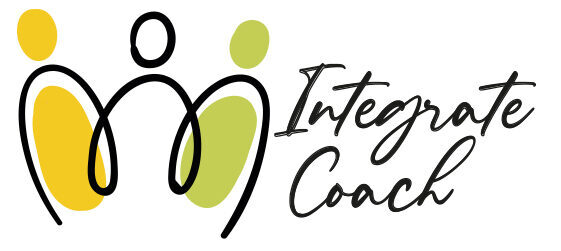Success through Positive Thoughts
As someone thinks within himself, so he is (Bible). Are you in control of your thoughts and if not, would you like to know how you can? Thoughts are delicate and if managed well can lead one to an overall healthy life. Studies in more recent times have shown that the control of your thoughts and the effects of that has been able to generate a more happy, healthy, and successful life.
The ability to train and control your thoughts results in self -development. Every person, no matter what their background or their lifestyle have the common theme of thoughts. There is no such thing as idle thoughts, for even if one is said to be idle, thinking of nothing, yet there is nothing that he is thinking about – in this sense we have the power to think right and have the power that leads to transformation. Ernest Holmes, in every man is king states that “Mental control is the only self -control, and those who learn it early escape with unhappiness and many hard experiences which darken the lives of those who fail to learn that greatest of all lessons.”

The mind has power over how we can navigate through the various aspects of life – the opportunities it presents, the challenges it brings up and opposition, both internal and external can be a crucial determinant of how well we adjust to life in general.
Science based on thoughts and experiments around it have proved that our thinking can affect the way we deal with everyday life. Our thoughts can either be strong and positive or debilitating.
An experiment by Alia Crum and Ellen Langer told hotel room attendants that their work provided the recommended exercise for a healthy lifestyle. On an average a hotel room attendant cleans about 15 rooms per day, each room taking between 20-30 minutes to complete. However, many found it difficult to either maintain a healthy weight and with many underlying health challenges. (The physical activity of 30 minutes per day for a healthy life meets the Surgeon General’s recommendation) This treatment group that were intimated that their daily work meets the standard of daily physical exercise, were monitored for four weeks as opposed to the control group who were not told the same. People in the treatment group lost weight; their body fat percentages, waist-to-hip ratios, and systolic blood pressure dropped. People in the control group showed no such improvement. These improvements happened even though the hours, diet and amount of exercise outside the work remained the same.
This is just one of many such experiments where the mind and the thoughts we think, and dwell upon can either cause us to be successful in what we do, or perhaps the cause for us losing focus and an ability to stay the course. This we call as ‘Mindset.’
changing mindsets
If it is possible for mindsets to change us, then is it possible that what we choose to set our minds on, can enable us to succeed and improve our abilities. While it is true that we may not be able to move objects by just focussing on them with our thoughts (some profess they can do that), but we can surely bring about change to our own creativity, our ability to thrive rather than just survive.

Dr. Carol S Dweck an American psychologist coined the terms “A fixed mindset” vs “A Growth Mindset.” In her book: Mindset-How you can fulfil your potential, she states that the view you adopt for yourself profoundly affects the way you lead your life.
A fixed mindset is a belief that your qualities are carved in stone. It, therefore, creates an urgency to prove yourself repeatedly. On the other hand, the growth mindset, is based on the belief that your basic qualities are things you can cultivate through your efforts. (Pgs 13,14).
Some of the features of a fixed mindset are as follows: avoid challenges, shy away from things you do not know, unable to handle feedback or criticisms, intelligence and talent is static and does not develop post birth, the need to always prove yourself, the success of other people does not sit with you well, regarding failure as the limit of ability.
The features of a growth mindset are as follows: view challenges as an opportunity, acknowledge and embrace weakness, criticisms are constructive and received well, intelligence and talent are dynamic and ever improving, take inspiration from others success.
Benjamin Barber an eminent political theorist once said, “I don’t divide the world into the weak and the strong, or the successes and the failures, those who make it or those who don’t. I divide the world into learners and non-learners.”
to learn or not to learn
What makes one a learner? Better still, what defines one as a non-learner? The ability to focus on things and lessons that enable growth or one that is static. The mind plays a huge role in what we consider as the learning-curve. This is different for different people and the analysis of it may provide different answers. However, thoughts that often dwell on the ‘stretch’ (the point of resistance that causes one to keep moving in the direction of progress), provide results that often lead to success.
The brain can adapt, adopt, and change to new learnings and this concept of brain change in neuroscience is called – ‘Neuroplasticity’. If you focus on a certain task at hand (long term or short term) and work hard at it – your brain can form new connections in the brain that wire together and fire together. This in turn provides the competencies to fulfil and achieve the said task.
success is personal
Therefore, the key to success is not defined by what others suggest success to look like for you. Neither is it based on what others believe you can or cannot accomplish. It is all ‘YOU’. You have the power to unlock the potential within you. What you do need is a habit of forming a healthy thought practice. Here I would like to mention just a couple of ways you can add success to your life, both professional and personal:
- Replace Self -limiting beliefs with empowering beliefs: This is not recommended as a top of the hat – easy to get application. This requires conscious and focussed thought. You must be willing to transfer the energy from your mind that belittles you and puts you in the shack, to an energy that lifts you up and sets you free from your limiting beliefs.
- Learn a new Behaviour: Everything learned can be un-learned and everything un-learned can be learned. To create a new behaviour is to form new habits. To form new habits, you need the right information. It is believed to be true that ‘information is power’. I choose to believe that ‘right information is power.’ What do you train your mind with – the GIGO (Garbage In garbage Out) principle is quite a strong force to reckon with. What you feed your mind, that will it spew out. It will affect every bit of you – your network of influence, your social circle, your family connections etc.
- Question your Perception: Perception is not fixed. It varies from person to person. The objective view of life differs based on circumstances. Perceptions are personal and often opinionated. To allow success to permeate what we do, we must ask the question, “How does this situation look”? “How can I benefit most from this situation?” We often look at the world through filter lenses and make judgements about things around us based on the same. While they may be effective personally, and in some situation, we must bear in mind that they are just filters. It does not represent our situations any different than we would like it.
- Read Constructively: Reading is a habit that strengthens your mind and enables you to think creatively. While many enjoy reading in some form or the other. What remains true and important is, what we choose to read? I choose to believe constructive reading can form an integral part of our overall well being and a healthy thought life can flow out through it. Make reading a habit – it not only creates a scope of greater understanding, but it also influences your ability to speak and communicate in the chosen language with ease. Reading has been proven to keep your mind young, healthy, and sharp. Reading reduces stress and aids in sleep readiness. It lowers blood pressure and heart rate; it also fights depression symptoms. With this inexhaustive list, we can accede that reading is of crucial importance and must not be neglected. Several studies show that reading can also help prevent Alzheimer’s disease. The thinking mind will be a healthy mind.
- Grow Consistently: Growth is the beauty of everything living. If something is alive, it must very well grow, if there is no growth then that could be the very definition of death or stagnancy. The opportunities to grow are numerous, based on the opportunities we are willing to seize. “Stay hungry, stay foolish,” a quote made famous by Steve Jobs, which he originally took from the last page of the Whole earth catalogue. It is a reminder to stay motivated, to keep an open state of learning and to subscribe to a growth mindset. Consider every challenge a level up to success and every failure an opportunity to learn.
Success through positive thoughts is never cumbersome. They can and will present new tangents of learning, growth and often failures. The key is to be persistent and have an attitude to learn and grow at every step. It will generate a greater productivity both personally and professionally.
“Stay Hungry, Stay Foolish.”


